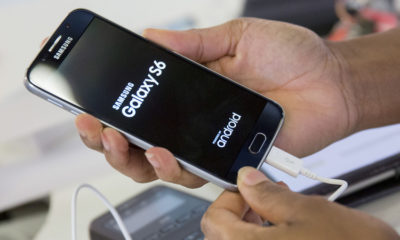- InfraCos to Access N65b Broadband Subsidy
Infrastructure Companies (infraCos) expected to drive broadband penetration in Nigeria would have access to the N65 billion subsidies over the next four-years.
However, investigation reveals that InfraCos that will access the subsidy are required to meet some set milestones, as compiled by the Nigerian Communications Commission (NCC), even as it seeks to get approval for more funding from the Presidency.
InfraCos are licensed by NCC to provide Layer 1 (dark fibre) services on commercial basis; focus on the deployment of metropolitan fibre, and provide transmission services, available at access points (Fibre to the Node or Neighbourhood – FTTN) to access seekers.
Already, the Commission planned to license seven operators – one provider for each of the six geo-political zones, and one specifically for Lagos. Six operators have already been licensed, while the remaining one for the North Central, whose process had started, would be unveiled in August.
Those licensed already include MainOne for Lagos; Zinox Technology Limited for South East, and Brinks Integrated Solutions Limited for North East. Others are O’dua Infraco Resources Limited for South-West, Fleek Networks Limited for North-West, and Raeana Nigeria Limited for South-South zone.
Speaking with journalists, during his visit to Lagos, the Director, Public Affairs, NCC, Dr. Henry Nkemadu, confirmed that funds have been budgeted for the project, and that the Commission is seeking approval for more from the Presidency.
He also revealed that NCC is now at the verge of concluding on the last InfraCo for the North Central, which was initially licensed to IHS Holdings, noting that many companies have shown interest in the region. “You will even be surprised that those who already bided and won some other regions could also be among those interested in the last InfraCo licence. It all boils down to their capacities. Each zone is independent of another zone.”
With regard to the N65 billion subsidies, Nkemadu explained: “The InfraCo project will be financed yearly, and this is subject to the operators meeting the required milestones. We are not going to pay them to do the job, but we are going to give them money for jobs well done. We shall soon conclude the signing of the subsidy agreement; that process is currently on. The period to get Nigeria connected through the InfraCos is four years; so to access the N65 billon subsidy, we divided the milestones into one year each.”
Some of the milestones operators are expected to meet include that the InfraCo should have established the project; must have started digging metro fibre, pilling, cable installation. It must have brought in equipment and got all necessary approvals in the region of interest.
While the NCC awaits approval to release the N65 billion, Nkemadu said “The provisions we have made in our budget for 2018 and 2019 did not cover the N65 billion. So, we need to get approval from the Presidency to give us lee way that will ensure more money is made available to the InfraCo.”
Meanwhile, an industry source told The Guardian that the President Muhammadu Buhari is also keen on seeing that broadband and Internet access gaps are bridged. As such, NCC is expected to close the 120,000km fibre connections gaps that currently exist in Nigeria.
Recall that the Executive Vice- Chairman, NCC, Prof Umar Danbatta, had warned the InfraCos that failure to rollout broadband infrastructure within six months will lead to withdrawal of their licences, as they were given a time frame of one-year to commence country-wide rollout.
Danbatta had said: “This is one of the biggest projects that have ever been undertaken by the regulatory agency. The licence has been granted and there is a time specified in the licence document within which they must start deploying the infrastructure, which is one year. They have since done six months and they have six more months before we see visible infrastructure rollout of broadband services in this country.”
The Guardian checks however, showed that the InfraCo for Lagos, MainOne, has started the deployment of infrastructure across the state.


 Naira4 weeks ago
Naira4 weeks ago
 News3 weeks ago
News3 weeks ago
 Education4 weeks ago
Education4 weeks ago
 Social Media4 weeks ago
Social Media4 weeks ago
 Economy4 weeks ago
Economy4 weeks ago
 Investment4 weeks ago
Investment4 weeks ago
 Dividends4 weeks ago
Dividends4 weeks ago
 Business3 weeks ago
Business3 weeks ago




























